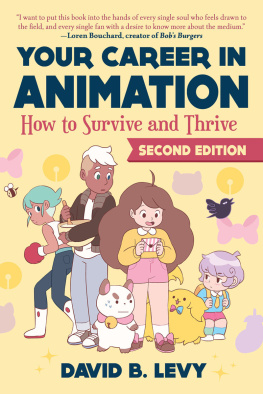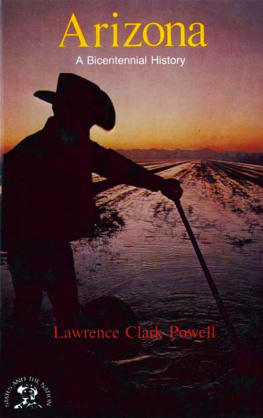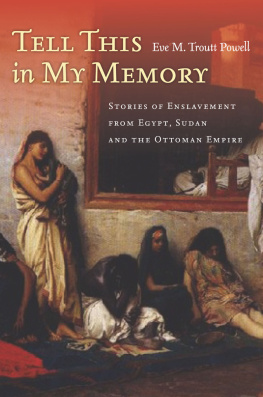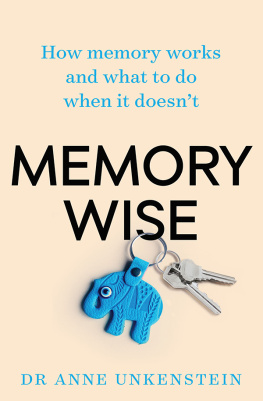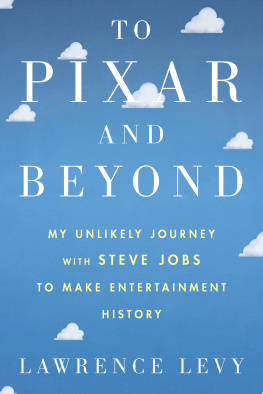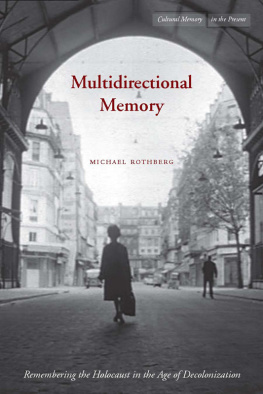Troubled Memory
ANNE LEVY, THE HOLOCAUST, AND DAVID DUKES LOUISIANA
LAWRENCE N. POWELL
SECOND EDITION
With a new preface by the author
The University of North Carolina Press
Chapel Hill
2000 The University of North Carolina Press
Preface 2019 The University of North Carolina Press
All rights reserved
Designed by April Leidig-Higgins
Set in Monotype Garamond by Keystone Typesetting, Inc.
Manufactured in the United States of America
The paper in this book meets the guidelines for permanence and durability of the Committee on Production Guidelines for Book Longevity of the Council on Library Resources.
ISBN 978-1-4696-5186-6 (pbk.: alk. paper)
ISBN 978-1-4696-5202-3 (ebook)
The Library of Congress has cataloged the original edition of this book as follows:
Powell, Lawrence N.
Troubled memory: Anne Levy, the Holocaust, and
David Dukes Louisiana / Lawrence N. Powell.
p. cm. Includes bibliographical references and index.
ISBN 0-8078-2504-2 (cloth: alk. paper)
1. Levy, Anne. 2. Skorecki family. 3. JewsPolandBiography. 4. Holocaust, JewishPolandBiography. 5. Holocaust survivorsLouisianaNew OrleansBiography. 6. Duke, David Ernest. 7. LouisianaPolitics and government1951. I. Title.
DS135.P63l3996 2000 940.53%18%0922DC21 99-18568 CIP
Publication of this volume has been aided by generous support from the following individuals and foundations: Harry J. Blumenthal Jr., The Cahn Family Foundation, The Robert B. and Shirley K. Haspel Endowment Fund, Edward D. Levy Jr., Louise L. Levy, The Levy Rosenblum Family Foundation, The Lucius N. Littauer Foundation, Jean and Saul Mintz, Paul S. Rosenblum, and The L. J. Skaggs and Mary C. Skaggs Foundation.
Page i and cover: Sisters Lila and Anne Levy (pictured right), circa 1938. Courtesy of Anne Levy. Anne and Lila found this photo in their father Marks wallet after his death in 1991. Some time after the war Mark wrote his daughters names on the photo, for reasons that still puzzle them.
TO DIANA
In remembrance resides the secret of redemption.
BAAL SHEM TOV
CONTENTS
ILLUSTRATIONS
Anne and Lila arm in arm, frontis
Before the War 4751
Wartime 21017
Displaced Persons 35762
David Dukes Louisiana 46770
MAPS
PREFACE TO THE SECOND EDITION
It has been nearly twenty years since Troubled Memory first appeared in print. I cant say Im surprised at its renewed resonance. Fascist-leaning populisma red thread running through this bookis suddenly back in vogue.
Louisiana is no stranger to fiery politics. The state has been lofting angry protest movements for more than a century. An early zenith occurred in the 1920s and 30s, when Huey Pierce Long, the self-styled Kingfish, rode the populist grievances of low-status whites to national prominence. No American politician before or since amassed the dictatorial power that Huey did. A spellbinder on the stump, he mastered the radio well before FDR began his fireside chats, then deployed a handpicked press to lacerate political enemies with a menagerie of barnyard insults. But Hueys authoritarian populism leaned left. While letting friends and family raid the state treasury, as governor he actually gave supporters something for their votes. They got free textbooks and medical care, good roads, and tons of bricks and mortar. Big oil and gas were told to pick up most of the tab. As U.S. senator, he launched a national share-the-wealth movement, which pushed FDRs New Deal decidedly to the left. Had he not been assassinated in 1935, there is no telling how the 1936 presidential election might have turned out. FDR feared him. In Roosevelts mind, Huey ranked alongside Douglas McArthur as the most dangerous man in the country.
Long was a populist whose demagoguery preached of economic uplift. David Duke, who donned a Klan hood that Nazism might receive an American sheen, catechized hate and racial fear. He came out of nowhere. One day he was hawking Holocaust denial literature and paeans to Hitler from his home office in Metairie, Louisiana; the next day, posing as a born-again conservative Republican in a 1989 special election for a House seat in the Louisiana legislature, he was eking out a narrow victory. Many observers dismissed his razor-thin election as a fluke. But they missed the point. It wasnt his victory margin that was important, necessarily, but the intensity of Dukes vote in the districts bungalow and tract housing precincts, a heavily Catholic suburb of Reagan Democrats.
Separated from New Orleans by one of the Katrina-breached drainage canals, the district was a study in contrasts. In the solidly Republican, posh precincts of leafy Old Metairie, Duke did poorly. On the other side of the I-10 corridor, where small business owners, repairmen, and white- and blue-collar middle-class families generally resided, the story was different. Since the collapse of oil prices in the mideighties, their living standards had been in free fall. They had delivered their votes to Ronald Reagan. One year after he left office, they went overwhelmingly for Duke. To anyone paying close attention, it was clear this Republican upstart from the New Orleans suburbs had caught lightning in a bottle.
Once kindled, the populist fervor lit by Dukes election swept across the partys base like a firestorm. Supporters swamped him with small contributions, a fact he conspicuously advertised by slicing open stacks of envelopes stuffed with cash and small contributions while sitting at his desk in the rear of the House chamber. It certainly caught the attention of most state Republicans. They rallied to Dukes defense when the mainstream media began prying into his history. So did the Christian Coalition, which gleefully brought him into their fold, notwithstanding revelations that Duke had authored (under the pseudonyms Dorothy Vanderbilt and James Konrad) a sexual self-help book for women. In 1990, Duke campaigned for the U.S. Senate seat held by a longtime incumbent. He almost won. The following year, he upstaged the sitting Republican governor to earn the right to face the Democrat Edwin Edwards in the gubernatorial runoff. This was Louisianas Vote for the Crook election, and it was when Dukes bubble finally burst. Even so, he garnered 55 percent of the white vote statewidemore than 670,000 votes, the most ever polled by a genuine Nazi sympathizer anywhere in the American Union.
Today few white Louisianans will admit to having voted for him. And judging from his dismal showing in the 2016 election for the U.S. Senate (he polled a mere 3 percent of the votes cast), Dukes viability as a mainstream candidate would seem to be effectively over. Yet the neo-fascist, right-leaning populism that catapulted him into national notoriety three decades earlier has resurfaced in the guise of the alt-right, to use the soft euphemism of the daily media. Riding on the coattails of Donald Trump, even unvarnished white nationalism has staged a startling comeback. Dukes political insurgency was no one-off event. It was a dress rehearsal for Trumpism.






